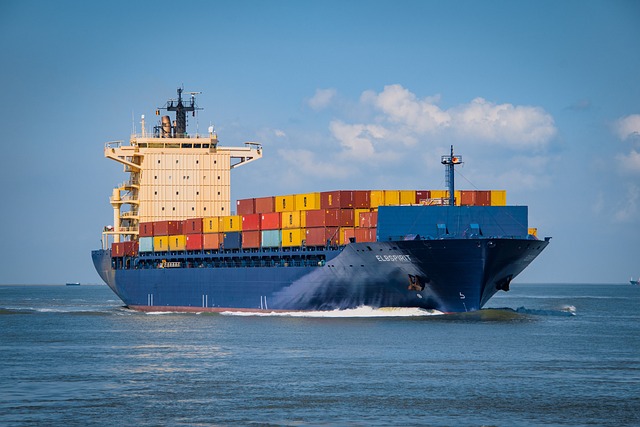If you are new to international shipping or are exploring new terms, you may have come across FCA as one of the shipping terms used in the industry. FCA, which stands for Free Carrier, is an International Chamber of Commerce (ICC) term used to specify the responsibilities of buyers and sellers during the delivery of goods. In this article, we will take an in-depth look at FCA in shipping terms, including what it means, how it works, and its advantages and disadvantages.
Table of Contents
What is FCA in Shipping Terms?

FCA stands for “Free Carrier” and is one of the commonly used international trade terms used in the transportation of goods. It specifies the delivery requirements and responsibilities of the seller and the buyer during the shipment of goods.FCA is a shipping term that specifies the responsibilities of the buyer and seller during the delivery of goods. According to the ICC, FCA means that the seller delivers the goods to a carrier or another person nominated by the buyer at a named place or point. The seller is responsible for loading the goods onto the buyer’s nominated carrier, and the buyer is responsible for all costs and risks associated with the goods from that point onward.
Here are some examples of when FCA shipping terms might be used:
- A buyer in the United States purchases a shipment of raw materials from a supplier in China. They agree to use FCA shipping terms, where the supplier is responsible for delivering the goods to the port of departure in China. The buyer is responsible for arranging and paying for the carrier to transport the goods from the port of departure in China to the port of entry in the United States.
- A seller in the United Kingdom agrees to sell a shipment of clothing to a buyer in France. They agree to use FCA shipping terms, where the seller is responsible for delivering the goods to a warehouse in the United Kingdom. The buyer is responsible for arranging and paying for the carrier to transport the goods from the warehouse in the United Kingdom to the final destination in France.
- A seller in Brazil agrees to sell a shipment of coffee beans to a buyer in Germany. They agree to use FCA shipping terms, where the seller is responsible for delivering the goods to a transport terminal in Brazil. The buyer is responsible for arranging and paying for the carrier to transport the goods from the transport terminal in Brazil to the final destination in Germany.
In each of these examples, FCA shipping terms were used to specify the delivery requirements and responsibilities of the seller and the buyer during the shipment of goods.
The Role of FCA in International Trade

FCA (Free Carrier) is an international trade term that plays a vital role in the transportation of goods from one country to another. It is a delivery term that specifies the responsibilities of the buyer and the seller during the shipment of goods. Here are some of the key roles that FCA plays in international trade:
- Clarity in Delivery Responsibilities: FCA provides clarity regarding the delivery responsibilities of the seller and the buyer. It specifies that the seller is responsible for loading the goods onto the carrier, while the buyer is responsible for arranging and paying for the carrier to transport the goods to the final destination.
- Flexibility in Choosing Carrier: FCA allows the buyer to select the carrier, which gives them flexibility in choosing a carrier that suits their requirements and budget. The buyer can choose the most cost-effective carrier or a carrier that provides the fastest delivery, depending on their needs.
- Cost Savings: FCA can help save costs for both the seller and the buyer. The seller can save on transportation costs by delivering the goods to a transport terminal instead of the final destination. The buyer can save on transportation costs by selecting a carrier that offers the best rates for the shipment.
- Reduced Risk: FCA can help reduce the risk for both the seller and the buyer. The seller’s risk is reduced as they are only responsible for delivering the goods to the agreed-upon location. The buyer’s risk is reduced as they have control over the carrier and can ensure that the carrier meets their requirements.
- Wide Usage: FCA is widely used in international trade, especially for shipments involving containerized goods, where the buyer is responsible for arranging for the transportation of goods from the seller’s location to the final destination.
FCA plays a significant role in international trade by providing clarity in delivery responsibilities, flexibility in choosing a carrier, cost savings, reduced risk, and wide usage. It is a useful tool for both sellers and buyers in ensuring that their goods are delivered efficiently and cost-effectively.
Understanding FCA Delivery Terms

To better understand FCA delivery terms, it’s essential to understand the different obligations that come with this shipping term. Here are some of the essential obligations of both parties under FCA:
- Seller’s Obligations
- Deliver the goods to the carrier or person nominated by the buyer.
- Load the goods onto the buyer’s carrier at the agreed place or point.
- Clear the goods for export.
- Buyer’s Obligations
- Nominated the carrier or person to receive the goods.
- Pay all costs and charges incurred from the point of delivery.
- Clear the goods for import.
FCA Shipping Process: How it Works
The FCA shipping process involves several steps, starting from the point of delivery and ending with the arrival of goods at the destination port. Here is a breakdown of the FCA shipping process:
- The seller delivers the goods to the buyer’s nominated carrier or person at the agreed place or point.
- The seller loads the goods onto the buyer’s carrier or person.
- The buyer takes over responsibility for the goods and bears all costs and risks associated with the goods from that point onwards.
- The buyer clears the goods for import and pays any duties or taxes applicable.
Advantages of Using FCA in Shipping

When it comes to international shipping, using the right delivery terms is essential for ensuring smooth transactions and minimizing risks. One popular option that many businesses use is FCA (Free Carrier) shipping terms. Here are ten advantages of using FCA in shipping:
- Simplifies the shipping process: FCA is a straightforward shipping term that clearly defines the responsibilities of both parties, making it easier to conduct international trade.
- Clear responsibility: With FCA, both the buyer and the seller have clearly defined responsibilities during the shipping process, making it easier to avoid misunderstandings or disputes.
- Reduced risks: Since FCA shipping terms clearly indicate when the transfer of risk from the seller to the buyer occurs, both parties can take appropriate steps to mitigate risk throughout the shipping process.
- Greater control: FCA provides greater control for both buyers and sellers, allowing them to select carriers, shipping routes, and other factors that can impact the cost and speed of shipping.
- Flexibility: The buyer has the flexibility to choose a carrier and the method of transport, which can help to reduce shipping costs and improve delivery times.
- Lower costs: FCA shipping terms can help to lower shipping costs for both buyers and sellers by allowing them to select carriers that offer more competitive rates.
- Faster delivery times: With FCA shipping terms, the buyer can choose a carrier that offers faster delivery times, allowing them to receive their goods more quickly.
- Reduced paperwork: Since FCA shipping terms are standardized, there is less paperwork required during the shipping process, which can help to save time and reduce administrative costs.
- Easier customs clearance: FCA shipping terms make it easier to clear customs, as all necessary documentation is clearly outlined in the shipping contract.
- Increased transparency: Both buyers and sellers have access to more information about the shipping process, including shipping times and the status of their goods.
- Improved customer satisfaction: With faster shipping times, lower costs, and greater control over the shipping process, FCA can help to improve customer satisfaction and increase repeat business.
Overall, FCA shipping terms offer numerous advantages for businesses engaged in international shipping, making it a popular choice for many companies around the world.
Disadvantages of Using FCA in Shipping
While FCA (Free Carrier) shipping terms offer many advantages for international shipping, there are also some potential disadvantages that businesses should be aware of. Here are some of the disadvantages of using FCA in shipping:
- Limited risk coverage: FCA shipping terms only cover the risk of loss or damage to goods up to the point of delivery to the carrier. Any loss or damage that occurs during transit is the responsibility of the buyer.
- Complex logistics: With FCA shipping terms, the buyer is responsible for arranging and paying for transport, which can be complex and time-consuming, particularly for international shipments.
- Potential for delays: Since the buyer is responsible for arranging transport, there is a risk of delays or other issues that can impact delivery times.
- Limited liability: FCA shipping terms limit the liability of the seller to the point of delivery to the carrier, which means that the buyer bears the risk of any damage or loss that occurs during transit.
- Higher costs: While FCA shipping terms can help to lower shipping costs, they can also result in higher costs if the buyer is not able to negotiate favorable rates with carriers.
- Language barriers: Since FCA shipping terms are standardized, there can be some confusion or misunderstandings if parties involved in the shipping process speak different languages.
Overall, while FCA shipping terms offer many benefits, they may not be suitable for all businesses or all types of shipments. Companies should carefully consider their shipping needs and the potential risks and costs associated with using FCA before deciding whether it is the right option for them.
What are the seller’s obligations under FCA?
Under FCA (Free Carrier) shipping terms, the seller has several key obligations that must be fulfilled in order for the shipment to be considered properly delivered. Here are the main obligations of the seller under FCA:
- Delivery of goods to the carrier: The seller is responsible for delivering the goods to the carrier at the agreed-upon location, which may be their own premises, a warehouse, or a transport hub.
- Export formalities: The seller is responsible for obtaining any necessary export licenses, permits, or other documentation required to export the goods.
- Packaging and marking: The seller is responsible for properly packaging and marking the goods to ensure they are adequately protected during transport and can be easily identified.
- Loading of goods: The seller is responsible for loading the goods onto the carrier’s transport, unless otherwise agreed upon.
- Providing proof of delivery: The seller must provide the buyer with proof of delivery, such as a bill of lading or other transport document.
- Cooperation with the buyer: The seller must cooperate with the buyer to provide any necessary information or documentation to ensure the smooth delivery of the goods.
It is important to note that under FCA shipping terms, the seller’s obligations end once the goods have been delivered to the carrier at the agreed-upon location. Any risk or liability associated with the shipment beyond that point is the responsibility of the buyer.
FCA vs. Other Shipping Terms
FCA is just one of several shipping terms used in international trade. Here is a comparison of FCA with other common shipping terms:
- FOB (Free on Board)
FOB means that the seller is responsible for all costs and risks associated with the goods until they are loaded onto the buyer’s nominated carrier. The buyer assumes responsibility for the goods from that point onwards.
- CFR (Cost and Freight)
CFR means that the seller is responsible for all costs and risks associated with the goods until they are loaded onto the buyer’s nominated vessel. The seller is also responsible for arranging and paying for the transport of goods to the destination port.
- CIF (Cost, Insurance, and Freight)
CIF means that the seller is responsible for all costs and risks associated with the goods until they are loaded onto the buyer’s nominated vessel. The seller is also responsible for arranging and paying for the transport of goods to the destination port and providing marine insurance.
Tips for Successful FCA Shipping
When using FCA (Free Carrier) shipping terms for international trade, there are several best practices that can help ensure a successful shipment. Here are nine tips to consider:
- Choose the right carrier: When selecting a carrier, it’s important to consider their experience and track record in handling the specific type of shipment. Look for carriers with a strong reputation for reliability and timely delivery.
- Confirm delivery terms: Before finalizing the transaction, make sure that both parties agree on the exact delivery location and the responsibilities of each party under the FCA terms.
- Plan for risk management: International trade can be risky, so it’s important to have a plan in place to manage potential risks such as damage or loss of goods, currency fluctuations, and regulatory compliance issues.
- Obtain appropriate insurance coverage: To manage risk, consider purchasing appropriate insurance coverage to protect the shipment during transit.
- Ensure compliance with regulations: FCA shipping terms require compliance with various international regulations, so make sure to stay up-to-date with any changes and ensure that all necessary documentation and licenses are obtained.
- Communicate effectively: Clear communication between the parties involved is crucial for successful international trade. Ensure that all communication is documented and that both parties are aware of their responsibilities.
- Conduct due diligence: Before entering into a transaction, conduct due diligence on the other party to ensure they are a reliable and trustworthy partner.
- Monitor the shipment: During transit, monitor the shipment closely to ensure that it is progressing according to plan and take action if any issues arise.
- Follow up after delivery: After the shipment has been delivered, follow up with the other party to ensure that they are satisfied with the transaction and address any issues that may have arisen.
By following these tips and best practices, you can help ensure a successful international trade transaction using FCA shipping terms.
The Future of FCA shipping terms

FCA shipping terms have been in use for several decades and have proven to be a reliable and flexible option for international trade. As the global marketplace continues to evolve, it’s likely that FCA terms will remain an important part of international trade in the future.
One trend that may impact the future of FCA shipping is the increasing focus on sustainability and environmental responsibility. Businesses may choose to work with carriers and logistics providers who prioritize sustainability and reduce the environmental impact of shipping. FCA terms offer flexibility in choosing the carrier, which may allow businesses to select carriers who meet their sustainability goals.
Another trend that may impact the future of FCA shipping is the increasing use of technology in logistics and transportation. Advances in automation, data analytics, and communication technologies may streamline the shipping process and make it easier to manage FCA shipments. For example, real-time tracking and monitoring of shipments may become more widespread, allowing businesses to stay informed about the status of their shipments and to take proactive measures to manage risk.
In addition, the ongoing globalization of trade and the increasing complexity of supply chains may make FCA shipping terms even more important in the future. FCA terms offer flexibility and control over the shipment, which can be especially valuable when dealing with complex international supply chains involving multiple parties and modes of transportation.
Common FAQs about FCA in Shipping
What does FCA mean in shipping terms?
FCA stands for Free Carrier and is a shipping term that specifies the responsibilities of buyers and sellers during the delivery of goods.
What are the seller’s obligations under FCA?
The seller’s obligations under FCA include delivering the goods to the carrier or person nominated by the buyer, loading the goods onto the buyer’s carrier at the agreed place or point, and clearing the goods for export.
What are the advantages of using FCA in shipping?
The advantages of using FCA in shipping include simplifying the shipping process, being cost-effective, and offering flexibility.
What are the disadvantages of using FCA in shipping?
The disadvantages of using FCA in shipping include the risk of damage or loss and limited protection for sellers.
How does FCA compare to other shipping terms?
FCA is similar to other shipping terms such as FOB, CFR, and CIF but has different obligations and responsibilities for both buyers and sellers.
Is FCA a common shipping term?
Yes, FCA is a common shipping term used in international trade.
Who pays for shipping under FCA terms?
Under FCA terms, the buyer pays for shipping from the point of delivery.
Can FCA be used for both containerized and non-containerized cargo?
Yes, FCA can be used for both containerized and non-containerized cargo.
Is FCA the same as EXW (Ex Works)?
No, FCA and EXW have different obligations and responsibilities for buyers and sellers.
What should I consider when choosing a shipping term for my international trade?
When choosing a shipping term for your international trade, consider factors such as cost, risks, and your level of control over the shipping process.
Conclusion
FCA shipping terms offer several benefits for international trade, including flexibility, cost-effectiveness, and ease of use. FCA allows the parties involved to negotiate the terms of the delivery and transportation, which can result in more favorable terms for both parties. Additionally, FCA offers greater control and visibility over the shipment, allowing for better risk management and quality assurance.
However, FCA also has some potential disadvantages, such as increased responsibility for the buyer and the risk of loss or damage during transit. It’s important for both parties to clearly understand their responsibilities under the FCA terms and to take appropriate measures to manage risk.
To ensure a successful FCA shipment, it’s important to choose the right carrier, plan for risk management, stay compliant with regulations, communicate effectively, and conduct due diligence on the other party. Following these best practices can help minimize risk and increase the likelihood of a successful transaction.
In addition, it’s important to stay up-to-date with any changes to international regulations and to maintain good relationships with partners involved in the transaction. Clear communication, effective risk management, and compliance with regulations are key to a successful FCA shipment and a positive experience for all parties involved.
Overall, FCA shipping terms are a valuable tool for international trade, offering flexibility, cost-effectiveness, and control over the shipment. By understanding the advantages and disadvantages of FCA and following best practices for successful international trade, businesses can take advantage of the benefits of FCA while minimizing risk and ensuring a positive outcome.

